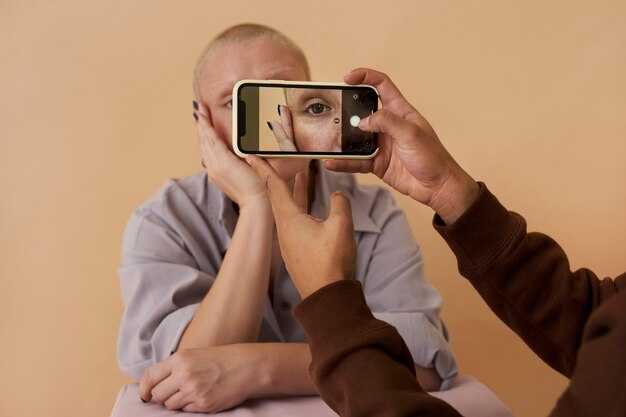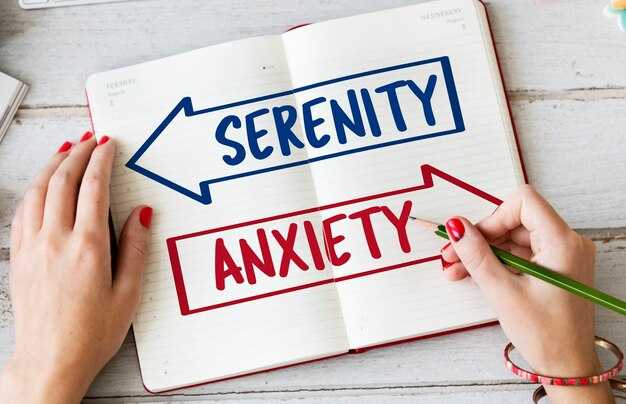Imagine finally meeting someone who accepts you as you are — after so many painful attempts to find love, this person is beside you, wanting to stay. Why, then, do people with trauma sometimes shut down when they are offered something good? That reaction is destructive for relationships: the better things look, the more you might feel numb, detached, and as if it isn’t real. Today’s first letter comes from a woman I’ll call Wendy. She writes: “Hi Anna — I’m 26 and have cPTSD, and I’m struggling to connect in my relationship. I grew up with a mother who was extremely emotionally abusive and sometimes physically violent; she even took me away from my father when I was seven. The abuse escalated to the point that it was life-threatening at times. I lived mostly with her until I was 14, when I fought to live primarily with my father because custody issues made it complicated. Moving in with my dad brought a cold, jealous stepmother who openly disliked me, which added more wounds of abandonment — from her and from my father for not protecting me. In that same year I also lost a grandfather who had been like a father to me. Fortunately, at that time I found a best friend who finally made me feel seen and loved, and for the first time I could process what had happened to me. Sadly, he died of addiction in 2020. I’ve spent eighteen years in therapy, and the last eight have been focused on working through my cPTSD. In the past three years I’ve really begun to thrive: my life is full, I have friends, love, and kindness, and I’m even in school to become a marriage and family therapist. I have a steady job — things I once thought impossible. Last year I think I may have met the man of my dreams. This isn’t my first relationship — most were bad — but this one feels different. He’s kind, caring, loving in a way I’ve never experienced, honest, and so similar to me. He isn’t angry; he understands me the way only my late friend did. I feel seen, loved, and he’s helped me grow. We started as friends with benefits and realized we had a beautiful friendship. I fell hard, but he was noncommittal, so I cut it off in November and kept distance. Eventually we decided we wanted each other and he asked me to be his girlfriend; he’s fully committed now and shows his devotion by his actions. We’ve been officially dating for about two months, but most of the time I feel wildly disconnected. Some days are good and some are bad, but when the disconnection hits it feels like my body and mind are elsewhere. It hurts because I love him deeply, and I’m ashamed of what’s happening. I plan to tell him soon; he’ll be understanding, but I don’t know how to fix this. It happens in our most intimate, tender moments — loving sex or when he says something sweet. When feelings get overwhelming I pull away, like trauma is stealing the most precious moments again. My body seems to reject love and I can’t let it in. Please help — I want to feel connected and I’m terrified of losing something good.” Wendy, I hear you, and I’m proud of the life you’ve built. You survived a brutal childhood; you’ve done therapy, have a career, a job, and you’ve met someone decent. You’re not the first person with complex trauma to struggle to accept the love of a good partner. There are strategies to improve your chances of tolerating closeness and not sabotaging what’s developing. It’s common for people with your history to feel detached or dissociate in the presence of genuine love — loving attention can feel intense and frightening when your experience was only instability. If you mostly grew up around unpredictable or unsafe caregivers, you may have an internal “escape hatch” ready for when things look promising. Fear of commitment, closeness, and the possibility of being accepted then losing someone can be underdeveloped inside you because you rarely had to manage those feelings. I was surprised by the same thing in my own marriage — having someone who truly intended to stay required a lot of adjustment. What you’re experiencing doesn’t necessarily mean you’re not into him; it can be a sign that the pace, expectations, and level of enmeshment have escalated too quickly. You said you’ve been officially dating two months (though you were friends longer). If you’ve already become highly enmeshed — spending most nights together, talking constantly about the future — it might be helpful to slow things down deliberately. I recommend going very slowly, avoiding grand declarations, and resisting the urge to rush intimacy. I often teach something called “structured dating”: create gentle limits (for example, not living together now, spending two or three evenings a week together rather than every night, keeping a weekend day but not the whole weekend). Slowing the pace helps feelings evolve more naturally and reduces pressure on the relationship. Trust doesn’t fix itself with words; it grows through repeated shared experiences — small moments like errands, arguments, problem-solving, and everyday reliability add up to grounded trust. As trust accumulates, your emotional, physical, and mental openness might also expand. There is a possibility, though, that what you feel when unguarded is more friendship than romantic love; that risk exists, and if it’s true, it’s painful, but the only way to find out is to let feelings develop with patience. For people who were neglected or abused, dating can feel like stepping into a minefield: one kiss can trigger a meltdown, and whole dates can open attachment wounds that overwhelm you with tears, panic, anger, and a frantic urge to hide your reaction so you don’t scare the other person away. That extreme vulnerability is not your fault; it often comes from early abandonment. Many people with cPTSD were left to understand and manage their feelings alone. Non-traumatized folks may think you should just “talk about it” or “take medication,” but that doesn’t stop the automatic reactions. There are more practical approaches that might actually help. My next letter is from a woman I’ll call Kati. She writes: “Hi — I recently started dating after six years single. I felt ready, tried a few casual connections, and then left a well-paying job in a major city to stay with my sister in my hometown for a few months because I wanted more social connection. I ended up talking to a guy on Facebook for a few months, told him I was in town, and we met. He was nice and respectful — nothing like my past partners — and I felt a strong connection. We loved the same music and laughed at the same things. At the end of the date he kissed me; it felt a bit fast but I hadn’t kissed anyone in years, so I got swept up. I didn’t know if he was the one and wanted to take things slowly to show how grown-up I was. He’s 31, I’m 29. After the kiss I began obsessing — fantasizing, replaying it, stalking his social media. I felt ashamed and convinced a nice guy like him wouldn’t want someone like me. I tried to act laid-back so I wouldn’t scare him off. We share the same birthday, which I read as a sign. He saw something was off in my texts — before the kiss I’d been my normal confident self, and he liked that version. Once limerence showed up, though, I had symptoms: worrying he talked to other girls (which I tried to let go of), wanting constant contact even though he didn’t text 24/7, and then getting into a fight where he said I was acting strange. The next day I got drunk, asked him to come over, we drank, we fooled around (I didn’t sleep with him), and I freaked out, told him I hated him, and asked to be taken home. He told me not to contact him, blocked me on Facebook, and later said our energies were different and apologized for leading me on. He said something like ‘I’m just thinking like a guy now,’ which felt like he saw me as just a sexual option. A week later I feel lost and obsessed: I stalk his social media, have panic attacks at night, and regret even coming back to my hometown. I’ve blocked him, asked to be blocked, and then messaged to see if he’d blocked me — he hadn’t. I stopped drinking to try to recover, but feel knocked off course and tempted to give up dating altogether. Any advice?” Kati, I have suggestions: in your letter you said you have cPTSD but didn’t detail your trauma. From what you describe — how sexual situations trigger you, the obsession that followed — it reads like someone who may have been neglected, unseen, and perhaps sexually violated in childhood. I may be mistaken, but the pattern fits what I’ve seen. You were craving connection and made a major life change, which is understandable after isolation. You met a respectful guy, felt chemistry, and the kiss activated a limerent spiral where he became the central focus of your life. Checking someone’s social media isn’t inherently wrong, but when it becomes obsessive it feeds shame and the belief that you’re unworthy. Trying to appear “laid-back” when you care deeply is a common defense — this “cool girl” act only masks your real feelings. You don’t have to pretend; you are allowed to be vulnerable without losing yourself. In practical terms, funnel that energy away from the person and into regulated practices: date in a structured way, delay sexual activity until you know someone, and make space to actually learn whether this person is a good match. Limerence thrives on lack of information — the less you know someone, the more you can project onto them. Put boundaries in place: decide how you want to date (for example, one person at a time, or explicit agreements about exclusivity), pause before sex, and be cautious of mixing alcohol with intimate situations, because alcohol can amplify impulsive behavior you later regret. If drinking consistently leads to actions you feel shame about, consider stopping drinking. Joining AA or another fellowship can provide sober companionship and routine; emotional sobriety matters even beyond physical abstinence. I told you to stop drinking because alcohol and your cPTSD combined to produce behavior that hurt both you and the budding relationship. When you got drunk and later told him you hated him, you pushed him away — and calling after he left likely made it harder for him to stay. Try not to over-interpret his words; in the moment of being pushed away he probably said what he needed to protect himself. You haven’t “lost yourself” after one date; you awakened to how strong your trauma responses still are. The best way forward is structure, sobriety if needed, therapy or a 12-step program (AA, or Sex and Love Addicts Anonymous if that fits), and daily practices that halt obsession. One technique I use is a twice-daily writing practice: put the feelings on paper to process them fully, then stop talking about or replaying the person. If you have a sponsor or trusted sober friend, share what you wrote only with them; beyond that, stop entertaining the problem. Think of an obsession like having drugs in your pocket — you wouldn’t give them opportunities to pull them out; you remove them. You have a chance to change patterns — healing is work, but it opens up a richer life. You can recover — healing is possible and often joyful when pursued with community and practice. Stop contacting him, practice no contact, and use daily writing and support to free yourself from that rumination. If you pursue recovery seriously, this disorganized attachment style can shift; childhood trauma commonly creates the push-pull patterns that drive people to long for love and then push it away. Managing those patterns is essential so you don’t repeat cycles of breaking up and reconciling that create chaos and wound others. My next letter is from a woman I’ll call Sabrina. She writes: “My childhood was chaotic: a mentally ill, violent sister and parents so distracted by managing her that they were emotionally unavailable. There was no ‘I love you’ or ‘I’m sorry,’ and I wasn’t allowed to cry. My mother was controlling and verbally abusive; my father was distant. I was the youngest but expected to be the adult. I began drinking at eight or nine to numb out the chaos and violence. I have a pattern of running away when triggered, and I still do that now through breakups and leaving relationships. I’m ten years sober and feel ready for a healthy relationship, but I’m terrified of choosing wrong because my instincts tell me to run. I started a long-distance relationship with Bob three years ago, which was safer because he was physically and emotionally distant. He loved me initially, and I pushed him away — I’d panic and break up. After several on-off cycles he said he couldn’t keep dealing with my breakups and blocks. I decided to grow up and said I wanted the relationship; I stopped breaking up as much, though the pattern continued. I’d break up over him canceling last minute, his temper, or emotional unavailability — all reminders of my parents. When I finally committed, he seemed to give up and withdraw. Oddly, he would always come back after a breakup, and I wondered if he was addicted to rejection. He dated someone else and stopped coming back; when he did, I went no contact for six months. He’d text about once a month, which I ignored. My son lost his father at the end of the relationship, and when I reached out to Bob for support, he didn’t check on us for three days and rarely after that. I felt let down during our grief; being part of a 12-step program brought me a lot of love and support during that time. After six months of no contact he apologized (a short text: ‘I effed up’), we chatted, and decided to see each other. He started taking me out often and we seemed like old friends. I asked if he was trying to date me; he said he wasn’t ready, though he wanted to date, and then we started a relationship. He agreed to couples therapy and seemed to grow, but after three sessions he broke up, then came back. Now he breaks up with me repeatedly — a pattern that sounds insane. I’m equally responsible for the dysfunction, and I have trouble trusting his love. He says he loves me and shows it through kindness and support, except when he’s dysregulated and shuts down. He says he sees us marrying and I found out he bought a ring, but then he chickened out and told my friend the timing wasn’t right. He’s a good dad and has improved over time, but this cycle is exhausting and wrecking my sleep, work, and ability to be present for my child. He claims he’s willing to do whatever it takes, but he walks out of therapy sessions. I trigger him because I can be bossy, demanding, and needy. Should I try harder or move on?” Sabrina, your history — emotional neglect, suppression of feelings, and early drinking — created a survival style that often becomes avoidant or disorganized attachment in adult relationships: you crave closeness yet are primed to run when danger feels near. Reading your description, it’s clear this relationship has become mutually destructive. To be honest: repeatedly breaking up with someone and pulling them back is a form of emotional abuse. The cycle you describe — constant on-off, drama, and mutual dysregulation — is toxic for everyone involved, including your child. It’s important you take responsibility for how your behavior harms others, and you need sustained work outside the relationship to change patterns. I’d advise you to step out of this relationship so you can devote energy to deep healing: therapy, 12-step groups for love addiction, or programs that help people with attachment wounds learn stable boundaries. Your child deserves a parent who can be steady and regulated; modeling healthy boundaries and recovery is the best legacy. Letting this man go may be the most loving thing you can do for both of you. People caught in trauma bonds often experience intense passion that feels like love, but true love is a verb: it doesn’t repeatedly abandon someone or cause them to feel chronically unsafe. Sometimes romantic manipulators — or relationships shaped by trauma bonding — create intense highs and then withdraw, creating a churn that simulates passion. You need to learn to recognize manipulation and the patterns that keeps you hooked. When you can identify manipulation, its “magic” disappears and you can make clearer choices. To help you spot manipulative romantic behavior, here are ten warning signs to listen for while dating: 1. Extreme jealousy or possessiveness: Feeling deep jealousy doesn’t automatically mean you’re crazy — it often signals that you bonded too fast in a relationship that wasn’t ready for that depth. If you wanted monogamy but rushed into a casual setup, your emotions will collide with reality. 2. Attacking your expectations: Manipulative partners often tell you that having expectations is unreasonable, boring, or unattractive, pressuring you to erase your needs so they can remain comfortable. 3. ‘I told you I was dating others’: They may claim they mentioned being involved with other people and you didn’t listen, which can gaslight you into blaming yourself. 4. Backtracking on plans: They’ll insist they never made the plans you relied on, leaving you confused and disappointed. When that happens, the healthiest response is to walk away rather than negotiate about reliability after the harm is done. 5. Using spiritual or “new age” language to dismiss you: If they say you’re not “in the moment” or “spiritually immature” when you question their behavior, they’re deflecting real concerns about honesty and commitment. 6. Saying you’re “too much in your head”: They may belittle your reasoning and suggest you should stop thinking. But thinking helps you set boundaries and notice red flags; it’s not a flaw. 7. Claiming humans aren’t meant for monogamy: When someone argues monogamy is a cultural construct, they may actually be telling you they don’t want commitment and are trying to shame you into accepting their casual approach. 8. Smooth platitudes that mean nothing: Phrases like “it’s all good” or “it is what it is” can be used to avoid answering pressing questions about fidelity, plans, or intentions. 9. Reinterpreting your feelings: A manipulator might tell you your concerns stem from your unresolved childhood issues rather than taking responsibility for their actions. While childhood wounds matter, that doesn’t automatically invalidate your legitimate needs. 10. Saying the hurt they cause is actually “healing” you: If someone insists that being hurt by them is somehow beneficial, don’t believe it — nobody heals you by hurting you. Those caught in trauma bonds often get trapped by this rhetoric, but you are in charge of your life and can insist on boundaries that preserve your dignity. You deserve relationships that don’t drain your energy, steal your self-worth, or treat you as disposable. If someone treats you like a stop on an emotional roller coaster, leave that relationship so you can heal. You aren’t in a relationship to learn cosmic lessons from being mistreated — you’re in one to share care, consistency, and mutual respect. If trauma keeps letting manipulators into your life, the work is to identify the pattern, stop enabling it, and develop healthier boundaries and supports. That’s the path to finding relationships that are safe, loving, and sustainable. [Music]
![Imagine finally meeting someone who accepts you as you are — after so many painful attempts to find love, this person is beside you, wanting to stay. Why, then, do people with trauma sometimes shut down when they are offered something good? That reaction is destructive for relationships: the better things look, the more you might feel numb, detached, and as if it isn’t real. Today’s first letter comes from a woman I’ll call Wendy. She writes: “Hi Anna — I’m 26 and have cPTSD, and I’m struggling to connect in my relationship. I grew up with a mother who was extremely emotionally abusive and sometimes physically violent; she even took me away from my father when I was seven. The abuse escalated to the point that it was life-threatening at times. I lived mostly with her until I was 14, when I fought to live primarily with my father because custody issues made it complicated. Moving in with my dad brought a cold, jealous stepmother who openly disliked me, which added more wounds of abandonment — from her and from my father for not protecting me. In that same year I also lost a grandfather who had been like a father to me. Fortunately, at that time I found a best friend who finally made me feel seen and loved, and for the first time I could process what had happened to me. Sadly, he died of addiction in 2020. I’ve spent eighteen years in therapy, and the last eight have been focused on working through my cPTSD. In the past three years I’ve really begun to thrive: my life is full, I have friends, love, and kindness, and I’m even in school to become a marriage and family therapist. I have a steady job — things I once thought impossible. Last year I think I may have met the man of my dreams. This isn’t my first relationship — most were bad — but this one feels different. He’s kind, caring, loving in a way I’ve never experienced, honest, and so similar to me. He isn’t angry; he understands me the way only my late friend did. I feel seen, loved, and he’s helped me grow. We started as friends with benefits and realized we had a beautiful friendship. I fell hard, but he was noncommittal, so I cut it off in November and kept distance. Eventually we decided we wanted each other and he asked me to be his girlfriend; he’s fully committed now and shows his devotion by his actions. We’ve been officially dating for about two months, but most of the time I feel wildly disconnected. Some days are good and some are bad, but when the disconnection hits it feels like my body and mind are elsewhere. It hurts because I love him deeply, and I’m ashamed of what’s happening. I plan to tell him soon; he’ll be understanding, but I don’t know how to fix this. It happens in our most intimate, tender moments — loving sex or when he says something sweet. When feelings get overwhelming I pull away, like trauma is stealing the most precious moments again. My body seems to reject love and I can’t let it in. Please help — I want to feel connected and I’m terrified of losing something good.” Wendy, I hear you, and I’m proud of the life you’ve built. You survived a brutal childhood; you’ve done therapy, have a career, a job, and you’ve met someone decent. You’re not the first person with complex trauma to struggle to accept the love of a good partner. There are strategies to improve your chances of tolerating closeness and not sabotaging what’s developing. It’s common for people with your history to feel detached or dissociate in the presence of genuine love — loving attention can feel intense and frightening when your experience was only instability. If you mostly grew up around unpredictable or unsafe caregivers, you may have an internal “escape hatch” ready for when things look promising. Fear of commitment, closeness, and the possibility of being accepted then losing someone can be underdeveloped inside you because you rarely had to manage those feelings. I was surprised by the same thing in my own marriage — having someone who truly intended to stay required a lot of adjustment. What you’re experiencing doesn’t necessarily mean you’re not into him; it can be a sign that the pace, expectations, and level of enmeshment have escalated too quickly. You said you’ve been officially dating two months (though you were friends longer). If you’ve already become highly enmeshed — spending most nights together, talking constantly about the future — it might be helpful to slow things down deliberately. I recommend going very slowly, avoiding grand declarations, and resisting the urge to rush intimacy. I often teach something called “structured dating”: create gentle limits (for example, not living together now, spending two or three evenings a week together rather than every night, keeping a weekend day but not the whole weekend). Slowing the pace helps feelings evolve more naturally and reduces pressure on the relationship. Trust doesn’t fix itself with words; it grows through repeated shared experiences — small moments like errands, arguments, problem-solving, and everyday reliability add up to grounded trust. As trust accumulates, your emotional, physical, and mental openness might also expand. There is a possibility, though, that what you feel when unguarded is more friendship than romantic love; that risk exists, and if it’s true, it’s painful, but the only way to find out is to let feelings develop with patience. For people who were neglected or abused, dating can feel like stepping into a minefield: one kiss can trigger a meltdown, and whole dates can open attachment wounds that overwhelm you with tears, panic, anger, and a frantic urge to hide your reaction so you don’t scare the other person away. That extreme vulnerability is not your fault; it often comes from early abandonment. Many people with cPTSD were left to understand and manage their feelings alone. Non-traumatized folks may think you should just “talk about it” or “take medication,” but that doesn’t stop the automatic reactions. There are more practical approaches that might actually help. My next letter is from a woman I’ll call Kati. She writes: “Hi — I recently started dating after six years single. I felt ready, tried a few casual connections, and then left a well-paying job in a major city to stay with my sister in my hometown for a few months because I wanted more social connection. I ended up talking to a guy on Facebook for a few months, told him I was in town, and we met. He was nice and respectful — nothing like my past partners — and I felt a strong connection. We loved the same music and laughed at the same things. At the end of the date he kissed me; it felt a bit fast but I hadn’t kissed anyone in years, so I got swept up. I didn’t know if he was the one and wanted to take things slowly to show how grown-up I was. He’s 31, I’m 29. After the kiss I began obsessing — fantasizing, replaying it, stalking his social media. I felt ashamed and convinced a nice guy like him wouldn’t want someone like me. I tried to act laid-back so I wouldn’t scare him off. We share the same birthday, which I read as a sign. He saw something was off in my texts — before the kiss I’d been my normal confident self, and he liked that version. Once limerence showed up, though, I had symptoms: worrying he talked to other girls (which I tried to let go of), wanting constant contact even though he didn’t text 24/7, and then getting into a fight where he said I was acting strange. The next day I got drunk, asked him to come over, we drank, we fooled around (I didn’t sleep with him), and I freaked out, told him I hated him, and asked to be taken home. He told me not to contact him, blocked me on Facebook, and later said our energies were different and apologized for leading me on. He said something like ‘I’m just thinking like a guy now,’ which felt like he saw me as just a sexual option. A week later I feel lost and obsessed: I stalk his social media, have panic attacks at night, and regret even coming back to my hometown. I’ve blocked him, asked to be blocked, and then messaged to see if he’d blocked me — he hadn’t. I stopped drinking to try to recover, but feel knocked off course and tempted to give up dating altogether. Any advice?” Kati, I have suggestions: in your letter you said you have cPTSD but didn’t detail your trauma. From what you describe — how sexual situations trigger you, the obsession that followed — it reads like someone who may have been neglected, unseen, and perhaps sexually violated in childhood. I may be mistaken, but the pattern fits what I’ve seen. You were craving connection and made a major life change, which is understandable after isolation. You met a respectful guy, felt chemistry, and the kiss activated a limerent spiral where he became the central focus of your life. Checking someone’s social media isn’t inherently wrong, but when it becomes obsessive it feeds shame and the belief that you’re unworthy. Trying to appear “laid-back” when you care deeply is a common defense — this “cool girl” act only masks your real feelings. You don’t have to pretend; you are allowed to be vulnerable without losing yourself. In practical terms, funnel that energy away from the person and into regulated practices: date in a structured way, delay sexual activity until you know someone, and make space to actually learn whether this person is a good match. Limerence thrives on lack of information — the less you know someone, the more you can project onto them. Put boundaries in place: decide how you want to date (for example, one person at a time, or explicit agreements about exclusivity), pause before sex, and be cautious of mixing alcohol with intimate situations, because alcohol can amplify impulsive behavior you later regret. If drinking consistently leads to actions you feel shame about, consider stopping drinking. Joining AA or another fellowship can provide sober companionship and routine; emotional sobriety matters even beyond physical abstinence. I told you to stop drinking because alcohol and your cPTSD combined to produce behavior that hurt both you and the budding relationship. When you got drunk and later told him you hated him, you pushed him away — and calling after he left likely made it harder for him to stay. Try not to over-interpret his words; in the moment of being pushed away he probably said what he needed to protect himself. You haven’t “lost yourself” after one date; you awakened to how strong your trauma responses still are. The best way forward is structure, sobriety if needed, therapy or a 12-step program (AA, or Sex and Love Addicts Anonymous if that fits), and daily practices that halt obsession. One technique I use is a twice-daily writing practice: put the feelings on paper to process them fully, then stop talking about or replaying the person. If you have a sponsor or trusted sober friend, share what you wrote only with them; beyond that, stop entertaining the problem. Think of an obsession like having drugs in your pocket — you wouldn’t give them opportunities to pull them out; you remove them. You have a chance to change patterns — healing is work, but it opens up a richer life. You can recover — healing is possible and often joyful when pursued with community and practice. Stop contacting him, practice no contact, and use daily writing and support to free yourself from that rumination. If you pursue recovery seriously, this disorganized attachment style can shift; childhood trauma commonly creates the push-pull patterns that drive people to long for love and then push it away. Managing those patterns is essential so you don’t repeat cycles of breaking up and reconciling that create chaos and wound others. My next letter is from a woman I’ll call Sabrina. She writes: “My childhood was chaotic: a mentally ill, violent sister and parents so distracted by managing her that they were emotionally unavailable. There was no ‘I love you’ or ‘I’m sorry,’ and I wasn’t allowed to cry. My mother was controlling and verbally abusive; my father was distant. I was the youngest but expected to be the adult. I began drinking at eight or nine to numb out the chaos and violence. I have a pattern of running away when triggered, and I still do that now through breakups and leaving relationships. I’m ten years sober and feel ready for a healthy relationship, but I’m terrified of choosing wrong because my instincts tell me to run. I started a long-distance relationship with Bob three years ago, which was safer because he was physically and emotionally distant. He loved me initially, and I pushed him away — I’d panic and break up. After several on-off cycles he said he couldn’t keep dealing with my breakups and blocks. I decided to grow up and said I wanted the relationship; I stopped breaking up as much, though the pattern continued. I’d break up over him canceling last minute, his temper, or emotional unavailability — all reminders of my parents. When I finally committed, he seemed to give up and withdraw. Oddly, he would always come back after a breakup, and I wondered if he was addicted to rejection. He dated someone else and stopped coming back; when he did, I went no contact for six months. He’d text about once a month, which I ignored. My son lost his father at the end of the relationship, and when I reached out to Bob for support, he didn’t check on us for three days and rarely after that. I felt let down during our grief; being part of a 12-step program brought me a lot of love and support during that time. After six months of no contact he apologized (a short text: ‘I effed up’), we chatted, and decided to see each other. He started taking me out often and we seemed like old friends. I asked if he was trying to date me; he said he wasn’t ready, though he wanted to date, and then we started a relationship. He agreed to couples therapy and seemed to grow, but after three sessions he broke up, then came back. Now he breaks up with me repeatedly — a pattern that sounds insane. I’m equally responsible for the dysfunction, and I have trouble trusting his love. He says he loves me and shows it through kindness and support, except when he’s dysregulated and shuts down. He says he sees us marrying and I found out he bought a ring, but then he chickened out and told my friend the timing wasn’t right. He’s a good dad and has improved over time, but this cycle is exhausting and wrecking my sleep, work, and ability to be present for my child. He claims he’s willing to do whatever it takes, but he walks out of therapy sessions. I trigger him because I can be bossy, demanding, and needy. Should I try harder or move on?” Sabrina, your history — emotional neglect, suppression of feelings, and early drinking — created a survival style that often becomes avoidant or disorganized attachment in adult relationships: you crave closeness yet are primed to run when danger feels near. Reading your description, it’s clear this relationship has become mutually destructive. To be honest: repeatedly breaking up with someone and pulling them back is a form of emotional abuse. The cycle you describe — constant on-off, drama, and mutual dysregulation — is toxic for everyone involved, including your child. It’s important you take responsibility for how your behavior harms others, and you need sustained work outside the relationship to change patterns. I’d advise you to step out of this relationship so you can devote energy to deep healing: therapy, 12-step groups for love addiction, or programs that help people with attachment wounds learn stable boundaries. Your child deserves a parent who can be steady and regulated; modeling healthy boundaries and recovery is the best legacy. Letting this man go may be the most loving thing you can do for both of you. People caught in trauma bonds often experience intense passion that feels like love, but true love is a verb: it doesn’t repeatedly abandon someone or cause them to feel chronically unsafe. Sometimes romantic manipulators — or relationships shaped by trauma bonding — create intense highs and then withdraw, creating a churn that simulates passion. You need to learn to recognize manipulation and the patterns that keeps you hooked. When you can identify manipulation, its “magic” disappears and you can make clearer choices. To help you spot manipulative romantic behavior, here are ten warning signs to listen for while dating: 1. Extreme jealousy or possessiveness: Feeling deep jealousy doesn’t automatically mean you’re crazy — it often signals that you bonded too fast in a relationship that wasn’t ready for that depth. If you wanted monogamy but rushed into a casual setup, your emotions will collide with reality. 2. Attacking your expectations: Manipulative partners often tell you that having expectations is unreasonable, boring, or unattractive, pressuring you to erase your needs so they can remain comfortable. 3. ‘I told you I was dating others’: They may claim they mentioned being involved with other people and you didn’t listen, which can gaslight you into blaming yourself. 4. Backtracking on plans: They’ll insist they never made the plans you relied on, leaving you confused and disappointed. When that happens, the healthiest response is to walk away rather than negotiate about reliability after the harm is done. 5. Using spiritual or “new age” language to dismiss you: If they say you’re not “in the moment” or “spiritually immature” when you question their behavior, they’re deflecting real concerns about honesty and commitment. 6. Saying you’re “too much in your head”: They may belittle your reasoning and suggest you should stop thinking. But thinking helps you set boundaries and notice red flags; it’s not a flaw. 7. Claiming humans aren’t meant for monogamy: When someone argues monogamy is a cultural construct, they may actually be telling you they don’t want commitment and are trying to shame you into accepting their casual approach. 8. Smooth platitudes that mean nothing: Phrases like “it’s all good” or “it is what it is” can be used to avoid answering pressing questions about fidelity, plans, or intentions. 9. Reinterpreting your feelings: A manipulator might tell you your concerns stem from your unresolved childhood issues rather than taking responsibility for their actions. While childhood wounds matter, that doesn’t automatically invalidate your legitimate needs. 10. Saying the hurt they cause is actually “healing” you: If someone insists that being hurt by them is somehow beneficial, don’t believe it — nobody heals you by hurting you. Those caught in trauma bonds often get trapped by this rhetoric, but you are in charge of your life and can insist on boundaries that preserve your dignity. You deserve relationships that don’t drain your energy, steal your self-worth, or treat you as disposable. If someone treats you like a stop on an emotional roller coaster, leave that relationship so you can heal. You aren’t in a relationship to learn cosmic lessons from being mistreated — you’re in one to share care, consistency, and mutual respect. If trauma keeps letting manipulators into your life, the work is to identify the pattern, stop enabling it, and develop healthier boundaries and supports. That’s the path to finding relationships that are safe, loving, and sustainable. [Music]](/wp-content/images/dont-let-these-attachment-styles-hurt-everyone-4-video-compilation-qyuaof9y.jpg)


 Don’t Let These Attachment Styles Hurt Everyone (4-Video Compilation)">
Don’t Let These Attachment Styles Hurt Everyone (4-Video Compilation)">






 Избегающее привязанность: эта «смена» — не отвержение. Это любовь (Не уходите) | Джордан Питерсон">
Избегающее привязанность: эта «смена» — не отвержение. Это любовь (Не уходите) | Джордан Питерсон">
 Обязательство означает БОЛЬШЕ, чем просто избежать Развода">
Обязательство означает БОЛЬШЕ, чем просто избежать Развода">
 Why Avoidants Only Chase You When These 3 Hidden Needs Are Triggered | Avoidant attachment style">
Why Avoidants Only Chase You When These 3 Hidden Needs Are Triggered | Avoidant attachment style">
 I Had No Friends… But Here’s What Finally Changed">
I Had No Friends… But Here’s What Finally Changed">
 When the Bedroom becomes a Chore…">
When the Bedroom becomes a Chore…">